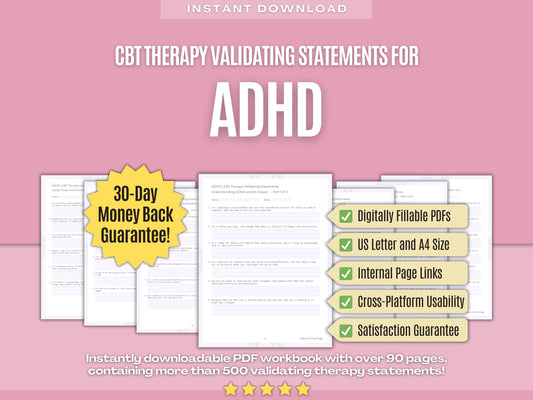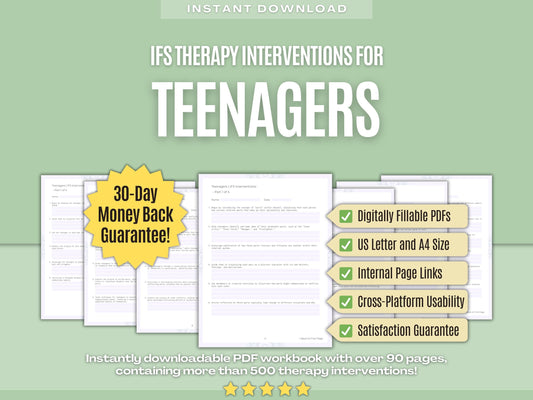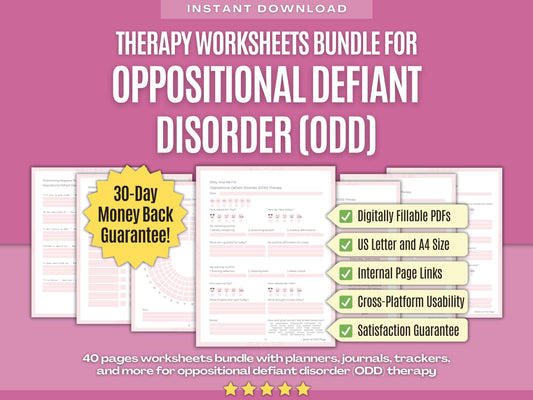Elevate Your Therapy and Guide Your Clients to Inner Healing with Our ADHD Validating Therapy Statements! ✨
1. Commencing Therapy Sessions
- I'm glad you're here today to begin our therapy sessions for managing ADHD, and I commend you for taking this important step.
- Your commitment to attending therapy sessions regularly is a positive indication of your dedication to managing your ADHD symptoms.
- It's common to feel apprehensive or unsure about what to expect from therapy sessions, but I want to assure you that this is a safe space where you can explore your thoughts and feelings without judgment.
- It's okay if you feel hesitant or skeptical about the therapy process; we'll take it at a pace that feels comfortable for you.
- I appreciate your honesty in sharing your experiences and challenges related to ADHD, and that honesty will be fundamental to our progress.
- Your willingness to engage in therapy activities and homework assignments outside of our sessions demonstrates your commitment to making meaningful changes.
- Your proactive approach to seeking therapy for ADHD is commendable, and it's a testament to your resilience and determination.
- It's common for individuals with ADHD to struggle with self-esteem or confidence, and our sessions will focus on building upon your strengths and resilience.
- It's okay to feel overwhelmed or frustrated at times during our sessions; managing ADHD can be challenging, but you're not alone in this journey.
- I appreciate your willingness to provide feedback on our sessions and how they're impacting your understanding and management of ADHD.
- Your courage in facing the challenges of ADHD head-on is admirable, and it's an indication of your strength and resilience.
Need more? Find all 500+ Validating Therapy Statements for ADHD Therapy in our Digital Workbook!
2. ADHD Psychoeducation
- It's essential to understand that ADHD is a neurodevelopmental disorder that affects various aspects of cognitive functioning, such as attention, impulse control, and executive functioning.
- Individuals with ADHD often experience challenges with maintaining focus and attention, which can impact academic, professional, and social activities.
- Many individuals with ADHD struggle with organization and time management, leading to difficulties in completing tasks and meeting deadlines.
- Hyperactivity is another core symptom of ADHD, although it may not always be present in every individual with the disorder.
- It's common for individuals with ADHD to experience difficulties in social situations, such as trouble following conversations or maintaining friendships.
- Genetics plays a significant role in the development of ADHD, and individuals with a family history of the disorder are at a higher risk.
- It's important to understand that ADHD is a lifelong condition, but with appropriate treatment and support, individuals can learn to manage their symptoms effectively.
- Medication, behavioral therapy, and lifestyle changes are all commonly used treatments for ADHD, and finding the right combination may require some trial and error.
- Self-care practices, such as exercise, adequate sleep, and stress management techniques, can help alleviate ADHD symptoms and improve overall well-being.
- Education accommodations, such as extended time on tests or preferential seating, can help level the playing field for individuals with ADHD.
- Emphasizing strengths and talents is essential for individuals with ADHD to build confidence and resilience in navigating their daily lives.
Need more? Find all 500+ Validating Therapy Statements for ADHD Therapy in our Digital Workbook!
3. Mindfulness-Based Interventions
- Let's start by acknowledging that mindfulness can be a powerful tool for managing ADHD symptoms by helping us cultivate greater awareness and presence in our daily lives.
- Mindfulness invites us to observe our thoughts, emotions, and sensations without judgment, allowing us to respond more skillfully to the challenges presented by ADHD.
- Through mindfulness practices, we can learn to recognize when our attention wanders and gently guide it back to the present moment, enhancing our ability to focus and concentrate.
- By cultivating mindfulness, we can develop greater emotional regulation, reducing the intensity of mood swings and increasing our resilience in the face of adversity.
- It's okay if you find it challenging to stay present during mindfulness exercises; like any skill, it takes practice and patience to develop.
- I want to acknowledge any skepticism or doubts you may have about mindfulness and reassure you that it's normal to approach new practices with a healthy dose of curiosity.
- It's important to approach mindfulness with kindness and self-compassion, recognizing that it's okay to have moments of difficulty or resistance.
- I want to emphasize that mindfulness is not about achieving a state of perfection but rather embracing our experiences, both pleasant and unpleasant, with openness and acceptance.
- I encourage you to approach mindfulness with a spirit of experimentation, allowing yourself to explore different techniques and find what feels most supportive for you.
- Remember that mindfulness is not about forcing ourselves to feel a certain way but rather allowing ourselves to be with whatever arises with gentleness and curiosity.
- It's important to recognize that mindfulness is a skill that develops over time, and each moment of practice contributes to greater clarity and insight.
Need more? Find all 500+ Validating Therapy Statements for ADHD Therapy in our Digital Workbook!
4. Dialectical Behavior Therapy (DBT)
- I appreciate your commitment to learning and practicing new skills through DBT.
- Your willingness to engage in DBT demonstrates your dedication to improving your emotional well-being.
- Your ability to recognize when you're in distress is a valuable skill that will serve you well in DBT.
- Your courage to confront difficult emotions head-on is commendable and a fundamental aspect of DBT.
- Your commitment to building a life worth living through DBT is inspiring.
- Remember, you're not alone in this journey; your DBT skills coach and support network are here to assist you.
- DBT encourages us to find a balance between acceptance and change, recognizing that both are essential for growth.
- Your dedication to building mastery in DBT skills is admirable and will contribute to your overall well-being.
- DBT teaches us to cultivate mindfulness, allowing us to stay present in the moment and respond effectively to challenges.
- Be patient with yourself as you practice DBT skills; mastery takes time and persistence.
- Remember, practicing radical acceptance doesn't mean condoning or approving of difficult situations; it means acknowledging reality as it is.
Need more? Find all 500+ Validating Therapy Statements for ADHD Therapy in our Digital Workbook!
5. Interpersonal Therapy (IPT)
- Your willingness to explore interpersonal therapy (IPT) reflects your commitment to improving your relationships and overall well-being.
- IPT encourages us to examine how our interactions with others impact our emotional health and vice versa.
- Your openness to exploring the dynamics of your relationships demonstrates your courage and willingness to grow.
- Your willingness to confront difficult emotions and experiences within your relationships is a significant step toward healing and growth.
- It's okay to feel uncertain about how to navigate interpersonal challenges; IPT provides a framework for developing skills and strategies to address them effectively.
- Your dedication to building stronger, more fulfilling relationships is truly inspiring.
- Your commitment to fostering empathy and understanding within your relationships is a testament to your compassion and resilience.
- Your willingness to explore your role in relationship dynamics demonstrates your readiness to take responsibility for your own growth and development.
- Embracing a mindset of curiosity and openness allows us to approach interpersonal challenges with a sense of possibility rather than limitation.
- Remember, your IPT therapist is here to support you as you navigate the complexities of your interpersonal world.
- Your resilience in the face of relationship challenges is a testament to your strength and determination.
Need more? Find all 500+ Validating Therapy Statements for ADHD Therapy in our Digital Workbook!
6. Emotion-Focused Therapy (EFT)
- Your willingness to engage in emotion-focused therapy (EFT) reflects your commitment to understanding and working through the emotional challenges associated with ADHD.
- EFT emphasizes the importance of recognizing and validating our emotions as a crucial step toward healing and growth.
- Your willingness to confront difficult emotions head-on is a courageous step toward greater emotional well-being.
- Your openness to exploring the root causes of your emotional struggles demonstrates your readiness to heal and grow.
- It's okay to feel overwhelmed or uncertain about how to navigate your emotions; therapy provides a space for exploration and support.
- Your dedication to fostering self-compassion and self-understanding within your emotional world is truly inspiring.
- Your commitment to building emotional resilience and coping skills is a crucial aspect of EFT.
- EFT encourages us to embrace a non-judgmental stance toward our emotions, allowing them to exist without labeling them as right or wrong.
- Your courage in confronting the depths of your emotional world is truly commendable.
- Celebrate the progress you make in understanding and working through your emotions; each step forward is a testament to your strength and resilience.
- EFT encourages us to embrace the full range of human emotions, recognizing that they are an integral part of the human experience.
Need more? Find all 500+ Validating Therapy Statements for ADHD Therapy in our Digital Workbook!
7. Psychodynamic Approaches
- Your willingness to engage in psychodynamic approaches within ADHD therapy demonstrates your commitment to exploring the underlying factors contributing to your challenges.
- Psychodynamic approaches invite us to explore the ways in which early childhood experiences and interpersonal dynamics may be influencing our present-day struggles with ADHD.
- Your willingness to confront unresolved issues from the past and explore their impact on your present is a courageous step toward greater self-awareness and healing.
- Your openness to exploring the connections between past experiences and present challenges demonstrates your readiness to heal and grow.
- It's okay to feel uncertain or overwhelmed as you delve into the complexities of your inner world; therapy provides a space for exploration and understanding.
- Your dedication to unraveling the mysteries of your psyche and understanding the root causes of your struggles is truly inspiring.
- Your commitment to self-exploration and personal growth is a crucial aspect of psychodynamic approaches.
- Psychodynamic approaches encourage us to embrace the complexity of human experience and to recognize the ways in which our past shapes our present.
- Your courage in facing the shadowy corners of your psyche and confronting unconscious material is truly commendable.
- Celebrate the progress you make in unraveling unconscious conflicts and gaining insight into your inner world; each step forward is a testament to your strength and resilience.
- Psychodynamic approaches encourage us to recognize and integrate all aspects of ourselves, including the shadowy and unconscious parts that we may prefer to ignore.
Need more? Find all 500+ Validating Therapy Statements for ADHD Therapy in our Digital Workbook!
8. Music Interventions
- Your willingness to explore music interventions within ADHD therapy reflects your openness to harnessing the power of music for therapeutic healing and growth.
- Music interventions offer a unique and powerful avenue for connecting with emotions, enhancing focus, and promoting relaxation, all of which can be beneficial in managing ADHD symptoms.
- Your openness to exploring the therapeutic potential of music demonstrates your readiness to explore alternative approaches to managing ADHD.
- Your willingness to engage with music as a therapeutic tool shows your commitment to exploring new avenues for personal growth and self-expression.
- It's okay to feel unsure about how to incorporate music into your therapeutic journey; your therapist is here to guide and support you every step of the way.
- Your dedication to exploring the therapeutic potential of music and its impact on your emotional well-being is truly inspiring.
- Your commitment to incorporating music into your ADHD therapy reflects your openness to exploring holistic approaches to managing your symptoms.
- Music interventions encourage us to use music as a tool for self-regulation and emotional expression, allowing us to find moments of calm and clarity amidst the chaos of ADHD.
- Your courage in embracing music as a therapeutic tool for managing ADHD symptoms and enhancing emotional well-being is truly commendable.
- Celebrate the progress you make in connecting with music on a deeper level; each musical experience is a step forward in your journey toward healing and growth.
- Music interventions encourage us to explore the ways in which music resonates with our unique experiences and emotions, allowing us to find comfort and solace in its rhythms and melodies.
Need more? Find all 500+ Validating Therapy Statements for ADHD Therapy in our Digital Workbook!
9. Therapy Session Wrap-Up
- As we conclude today's session, I want to acknowledge the effort and courage you've shown in exploring your thoughts, feelings, and experiences.
- Each session is an opportunity for growth and self-discovery, and I appreciate your willingness to engage in this process with honesty and openness.
- Your commitment to your own well-being and personal growth is evident, and it's truly inspiring to witness.
- It's okay to feel a range of emotions as we delve into challenging topics; your emotional responses are valid and important.
- I want to express gratitude for your trust and willingness to share your experiences with me in this therapeutic space.
- Your dedication to your own growth and well-being is evident in the work you're doing both in and outside of our therapy sessions.
- As we wrap up today's session, I want to remind you that it's okay to take breaks and practice self-care between sessions.
- I want to acknowledge the vulnerability you've shown in exploring difficult topics and emotions during our time together.
- As we come to the end of today's session, I want to affirm the progress you've made and the insights you've gained.
- Remember to be patient with yourself as you navigate the ups and downs of the therapeutic process.
- As we wrap up today's session, I encourage you to carry the insights and reflections we've discussed with you as you move through your week.
Need more? Find all 500+ Validating Therapy Statements for ADHD Therapy in our Digital Workbook!
10. Concluding Therapy Sessions
- It's been truly inspiring witnessing your growth and progress throughout our sessions.
- I want to acknowledge the effort you've consistently put into our sessions.
- I've observed how you've navigated challenges with resilience and determination.
- You've shown great insight into recognizing patterns and triggers.
- Your openness to feedback and willingness to adjust approaches have been instrumental.
- Your self-awareness and reflection demonstrate significant growth.
- I've appreciated our collaborative effort in exploring various strategies.
- You've demonstrated resilience in facing setbacks and challenges head-on.
- It's clear that you've invested time and energy in your personal development.
- Your willingness to confront difficult emotions is a testament to your bravery.
- Your honesty and authenticity have created a safe space for meaningful exploration.
We hope that our validating therapy statements for ADHD therapy will help you to elevate your therapy practice and guide your clients to inner healing! Do you need more validating therapy statements for ADHD therapy? Find them all in our Digital Workbook! Or do you have any questions or suggestions for us? Please feel free to contact us at any time!


















